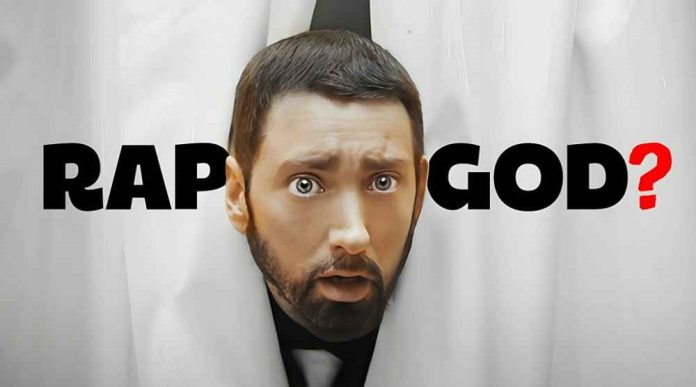
Eminem, once celebrated as one of the most groundbreaking rappers in the industry, now faces growing criticism. Some view this backlash as a natural part of his evolving career, while others argue that it reflects deeper cultural shifts. The debate revolves around whether Eminem has become outdated or if this criticism stems from broader societal changes. To understand why he’s now the target of public scorn, we must examine how fans and critics view him today.
Eminem’s Legacy: From Rebel to Criticized Figure
Eminem, also known as Marshall Mathers, gained fame in the late 1990s with his raw lyrics and provocative style. Songs like “Stan,” “The Real Slim Shady,” and “Lose Yourself” cemented him as a lyrical genius and cultural disruptor. He spoke to a generation that embraced his irreverence. However, the same qualities that defined his rise are now being used against him.
Over time, Eminem has been criticized for not adapting to the current cultural landscape. His lyrics, often focused on themes of violence, misogyny, homophobia, and substance abuse, once mirrored the rebellious spirit of the early 2000s. But in today’s world—where inclusivity, political correctness, and accountability matter more than ever—his older material is viewed with more scrutiny. Fans who once hailed him for his audacity now question whether his work has aged well, particularly given changing societal values.
Is Eminem Outdated?
A major reason for the growing criticism is the belief that Eminem is disconnected from today’s music scene and societal norms. Critics argue that what was once considered boundary-pushing now feels offensive and unnecessary. In an era dominated by artists like Kendrick Lamar, J. Cole, and Tyler, The Creator, who tackle societal issues with nuance, Eminem’s shock-value lyrics seem out of place.
For example, his 2020 album Music to Be Murdered By drew backlash for referencing the 2017 Manchester Arena bombing during an Ariana Grande concert. Fans who once dismissed such content as “just Slim Shady” are less forgiving now. This shift in sensitivity highlights how Eminem struggles with an audience that no longer tolerates offensive humor.
Additionally, Eminem’s public feuds with younger artists, like Machine Gun Kelly, contribute to the perception that he’s out of touch. These feuds, while entertaining to some, have made him appear resistant to the evolving music industry. Many fans prefer growth and introspection from their favorite artists, leaving Eminem’s combative persona feeling outdated.
Broader Societal Shifts: The Culture of Accountability
The rise of “cancel culture” and increased calls for accountability have also fueled criticism of Eminem. In today’s social media-driven world, celebrities are held responsible for past actions and lyrics that were once ignored or praised. Eminem’s history of controversial content is now being reexamined, with younger generations calling him out for promoting harmful ideas.
Lyrics that once included violence against women or homophobic slurs, though common in early 2000s rap, no longer fly in today’s culture. Fans expect artists to address or apologize for offensive material, but Eminem, often defending his Slim Shady persona, has largely avoided accountability. His refusal to reflect on his past work has alienated younger listeners who seek responsibility from their idols.
In addition, discourse around mental health has evolved since Eminem’s early days. Though he’s been open about his struggles with addiction, his continued focus on rage, revenge, and violence doesn’t align with today’s emphasis on healing and growth. In a culture that values emotional intelligence, Eminem’s persona—centered on anger and confrontation—feels increasingly out of step.
Eminem’s Response to Criticism
Eminem has always addressed his critics directly. Much of his career has thrived on controversy, using it as fuel for his music. However, his recent responses lack the impact they once had. His diss tracks, once sharp and clever, now seem more defensive, leaving some to question if he can still thrive in an industry that has moved beyond conflict-driven content.
For example, his diss track “KILLSHOT,” aimed at Machine Gun Kelly, leaned into his familiar aggressive style, but many felt it lacked evolution. While Eminem’s talent as a rapper remains undeniable, his refusal to adapt his message to today’s cultural climate has been seen as a flaw.
Eminem has expressed frustration with modern political correctness, claiming it stifles creativity. In interviews and music, he has criticized today’s sensitivity, arguing that it limits artistic freedom. However, this critique hasn’t resonated with fans who believe that evolving social norms are essential for progress.
Conclusion: Is the Backlash Justified?
Whether Eminem is truly outdated or society has simply moved on from his brand of music remains a complex question. His refusal to conform to current standards of political correctness could be seen as staying true to his roots. On the other hand, his lack of sensitivity to modern issues has made many question his relevance today.
What’s clear is that public perception of Eminem has shifted. The qualities that once made him a revolutionary artist are now viewed as relics of a past era. Whether the criticism is justified or not, Eminem’s legacy will be shaped by how he navigates this new cultural landscape. His future relevance may depend on whether he chooses to evolve or continues to embrace the persona of the rebellious outsider.
Read more industry news and insights on Music Industry Weekly.







